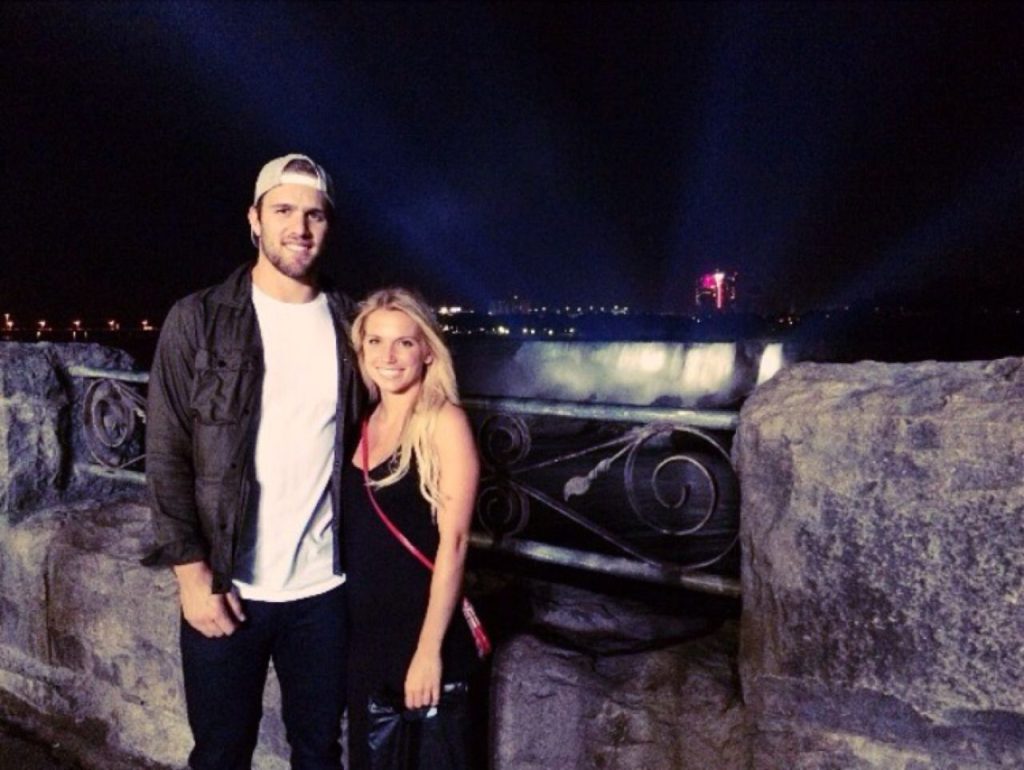#SameHere Celebs
Alliance Profile - Riley Sheahan


Riley Sheahan
Riley Michael Sheahan is a Canadian professional ice hockey center who is currently playing with EHC Biel of the National League, He was drafted 21st overall by the Detroit Red Wings in the 2010 NHL Draft. He most recently played for the Buffalo Sabres and has been a member of four other NHL teams besides the two aforementioned ones: Pittsburgh Penguins, Florida Panthers, Edmonton Oilers, Seattle Kraken.
What past life experiences, physical traumas or genetics do you believe have had an effect on your mental health?
I grew up in an amazing household in St. Catharines, ON playing sports, hanging with friends and going to school. I was quickly pegged as a talented hockey player that was expected to do big things. I kept climbing the ranks from junior hockey to division one to being a first round draft pick. Looking back, the pressure that I had put on myself to achieve my dream and represent all those in my town, was unhealthy and any sort of failure was not acceptable. Not just failing in hockey, but failing to fit in socially too. There was nothing I wanted more than to be a hockey star and to be accepted by my peers which led to excessive drinking, treating people poorly while seeking acceptance of others, letting down the ones that I love and getting in trouble with the law. In doing so it all accumulated in my nervous system and just felt “heavy,” until it eventually led to battles with depression and panic attacks. After multiple arrests for drinking related offences, the understanding of the pressure I was putting on myself, and some help from the people I love I have been on a journey to better my mental health.
How did the effects on your mental health appear in terms of symptoms?
In the early days of my journey to becoming a professional hockey player I was oblivious to what declining mental health even was – I didn’t pay attention to it. I would bottle up feelings and suppress my emotions, It eventually unraveled and all came out in different ways. I remember feeling checked out, in a fog and would always feel like there was something wrong with me. I suffered panic attacks before games where I felt like I couldn’t breathe and that I didn’t belong at the NHL level. I remember always wanting to be somewhere else rather than in the setting I was in, especially if I wasn’t performing my best. When I would enter crowds, (and even to this day), I would get the sense that everyone is looking at me and judging me in a negative way.
When and why did you decide to ask for help to get relief?
In 2015 I decided to go to a psychologist for the first time because I couldn’t perform. I missed a weekend of playing because my declining mental health wouldn’t let me get out of bed. So, I notified my team (the Detroit Red Wings) and told them I have some personal issues I needed to tend to. I couldn’t keep hiding the emotions and I began to understand the pressure I was putting on myself was unhealthy.
What methods helped you individually get/feel better?
Using a psychologist, a life coach, fitness training, nutrition, yoga, being present with the ones that I love and having meaningful conversation, helping others, cold exposure, have experimented with micro dosing and it helped.
Why did you decide to go public with your story? Who were/are you hoping to help and how?
I find listening to others’ stories is therapeutic. Knowing there are other people out there who feel the same way I do helps me push through. I also find myself more approachable for others and that makes me feel important. I want to help anyone within reach be at peace and know there’s a light at the end of the title. If I’m being honest, working with young athletes is very appealing to me but most importantly leading by example for my son.
How did people react when you went public with your story?
I have had a ton of support. I don’t think I should have praise in what I overcame. I think the support should come from people appreciating me being open and spreading a message of self-love. It definitely comes in both ways but it’s nice to know you can help people even if it’s the slightest bit. I am not scared to acknowledge the failures or struggles in my life because it sparks conversation. People can relate to the hiccups and downfalls in life and that makes it easier to grow. Knowing that we’re in this together and community trumps individualism.
Do you have any resources you would like to drive people to?
https://linktr.ee/speakyour_mind

